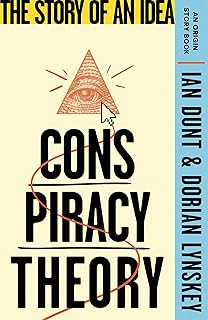In a study conducted by researchers at the University of Bamberg, Germany, the impact of extreme statements in conspiracy theories on the plausibility of canonical information was investigated. The study aimed to understand how the presence of absurd statements influences the construction of narratives and the acceptance of conspiracy theories.
Conspiracy theories often involve extreme and off-wall conclusions, such as reptile prime ministers or flying Nazi saucers. These theories challenge traditional beliefs and can affect how people perceive canonical information. While individual differences in conspiracy theory endorsement have been studied, the role of extreme statements in shaping conspiratorial narratives has not been explored experimentally.
The researchers identified six key components of conspiracy theories through empirical analysis. These components were used to create narrative elements for a 9/11 story, varying from official statements to extreme conspiratorial claims. Participants were asked to construct a plausible narrative using these elements, and the results showed that the presence of extreme statements led to more conspiratorial stories with a decrease in the inclusion of official information.
The study highlighted that extreme statements in a pool of information can influence individual narratives, shifting them towards conspiracy theories. This effect was observed even when participants rated the plausibility of their stories similarly across different conditions. The findings suggest that extreme statements can shape individual opinions and lead to the synthesis of conspiracy theories.
The researchers also discussed the real-world implications of this effect, citing the controversial book “Germany is Abolishing Itself” by Thilo Sarrazin as an example. The book, known for its radical views on migration and cultural purity, exemplified how extreme statements can impact public discourse and influence individual beliefs.
Overall, the study emphasized the dangers of absurd statements in conspiracy theories, as they can distort perceptions of reality and lead to the acceptance of extreme viewpoints. The research highlighted the importance of understanding how narratives are constructed and how extreme information can shape individual opinions, ultimately influencing societal debates and beliefs.
📰 Related Articles
- Oklahoma to Teach 2020 Election Conspiracy Theories in Schools
- Greyhound Racing Industry Influence on Media: Unveiling the Narrative
- Geoengineering: Unraveling Weather Conspiracy Theories and Ethical Implications
- Conspiracy Theories Surrounding Cyclone Alfred’s Unusual Behavior Persist
- VA’s Environmental Testing Progress at Alameda Point Construction Site
📚Book Titles
- Extraterrestrial Epochs: Tracing UFOs Influence Through History and Humanity
- Mastering Influence: Transformative Strategies for Ethical Persuasion
- AI Strategies for Winning the Lotto: Artificial Intelligence Techniques for Predicting Lottery Outcomes
- Co-Working Revolution: A Comprehensive Guide to Collaborative Workspaces Introduction






